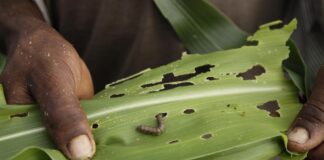Illustrative Image: Moses Mapesa Research Grant 2026–2027: Funding Opportunity for African Heritage Master’s and PhD Students
Image Source & Credit: AWHF.net
Ownership and Usage Policy
1. About the African World Heritage Fund (AWHF)
Established in 2006 through a collaborative effort between the African Union and UNESCO, the African World Heritage Fund (AWHF) is an intergovernmental organization dedicated to the preservation of Africa’s cultural and natural heritage. Its core mission is to enhance the conservation, protection, and sustainable management of African sites designated as having Outstanding Universal Value under the 1972 UNESCO World Heritage Convention.
Africa’s representation on the World Heritage List remains low, and many listed sites face challenges related to management, conservation, and exposure to threats such as climate change and conflict. In response, AWHF provides technical and financial support to address these gaps. Since 2010, AWHF has operated as a Category II Centre under UNESCO, hosted by the South African government at the Development Bank of Southern Africa, serving as a continental hub for heritage-related initiatives.
2. About the Moses Mapesa Research Grant
In honor of the late Moses Mapesa, a leading heritage expert and former Executive Director of the Uganda Wildlife Authority, AWHF launched this grant to empower the next generation of African researchers in the field of heritage. The Moses Mapesa Research Grant provides financial assistance to master’s and doctoral students whose research focuses on natural or cultural heritage within Africa—particularly work connected to World Heritage Sites or those on national Tentative Lists.
The grant aims to strengthen academic research, promote home-grown expertise, and build capacity in heritage management, with a specific focus on topics such as climate change, traditional knowledge systems, youth engagement, and digital innovation.
3. Eligibility Criteria
Applicants must meet the following conditions to be eligible:
-
Be currently enrolled or planning to enroll in 2026 in a Master’s (or Master 2 for Francophone countries) or Doctoral program at a recognized African university.
-
Conduct dissertation research that is directly related to a World Heritage Site or Tentative List site in Africa. (Access the official lists here: World Heritage List, Tentative Lists)
-
Be a citizen of a Member State of the African Union that is party to the 1972 UNESCO World Heritage Convention.
-
Be proficient in at least one of the AWHF’s working languages: English, French, or Portuguese.
4. Grant Details and Research Focus
The Moses Mapesa Grant provides up to USD $5,000 to support research activities, primarily fieldwork, conducted over a period of nine months, from May 2026 to February 2027.
Research proposals must engage with a World Heritage or Tentative List site and align with one or more of the following thematic areas:
-
Traditional custodianship and indigenous management systems
-
Heritage risk management and disaster preparedness
-
Heritage in conflict or post-conflict environments
-
Conservation techniques and site management
-
Heritage and climate resilience
-
Presentation, interpretation, and public engagement with heritage
-
Economic and entrepreneurial aspects of heritage
-
Heritage and sustainable development goals (SDGs)
-
Promotion of heritage awareness
-
Legal frameworks, policing, and human rights in heritage
-
Use of digital tools, AI, and technology in heritage preservation
-
Authenticity and identity in heritage conservation
-
Youth engagement and intergenerational knowledge transmission
5. Grant Conditions and Responsibilities
Recipients of the Moses Mapesa Grant are expected to fulfill the following obligations:
-
Submit a detailed research description along with proof of academic registration at the start of the funding period.
-
Submit a final report, including a financial statement and either a research summary or full dissertation/thesis, by the end of the grant period.
-
Ensure that all documents and reports are presented in English, French, or Portuguese.
-
Complete the research within the stipulated 9-month window (May 2026 – February 2027). Any delay or failure to fulfill the grant requirements will necessitate repayment of the awarded funds.
6. Application Requirements
Applicants must submit a complete application package consisting of:
-
Completed Application Form, co-signed by academic supervisor
-
Motivation Letter (maximum 1 page)
-
Curriculum Vitae (maximum 2 pages)
-
Proof of registration or acceptance letter from a university
-
Research Proposal (maximum 2 pages) including:
-
Full name, affiliated university, country, degree level
-
Title of research and relevant World Heritage/Tentative site
-
Objectives, research questions, justification, relevance, and expected outcomes
-
Methodology and timeline
-
Bibliography
-
Budget with a breakdown of expected costs, sources of additional funding (if any), and justification for each item requested from the AWHF
-
Note: Incomplete applications or those not meeting the eligibility criteria will not be considered.
7. How to Apply
-
Submit all required documents online only via the Moses Mapesa Grant 2026/27 Application Link (no hard copies will be accepted).
8. Deadline for Submission
The final deadline for applications is Midnight SAST on 31 July 2025. Early submissions are highly encouraged. Late applications will not be reviewed.
9. Evaluation and Selection
An interdisciplinary panel of experts from across Africa will review applications based on:
-
Eligibility criteria
-
Completeness of application
-
Relevance, originality, and feasibility of the proposed research
-
Geographic, gender, and linguistic diversity
10. Notification of Results
Applicants will be notified of the outcome by 31 January 2026.
For More Information
For inquiries, contact:
African World Heritage Fund
1258 Lever Road, Headway Hill, Midrand,
South Africa
This grant presents a unique opportunity for African scholars to not only contribute to the academic field of heritage conservation but also to become active participants in shaping the continent’s future through research, protection, and storytelling of its invaluable heritage assets.




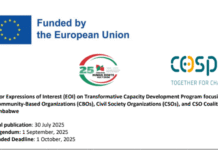
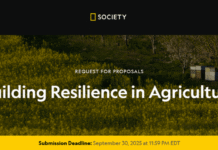
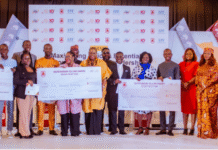
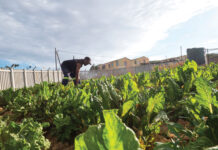
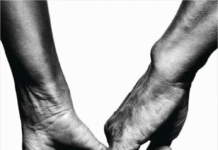







 The African Research (AR) Index is a comprehensive scholarly directory and database focused explicitly on journal publishers that publish and disseminate African research.
The African Research (AR) Index is a comprehensive scholarly directory and database focused explicitly on journal publishers that publish and disseminate African research.

